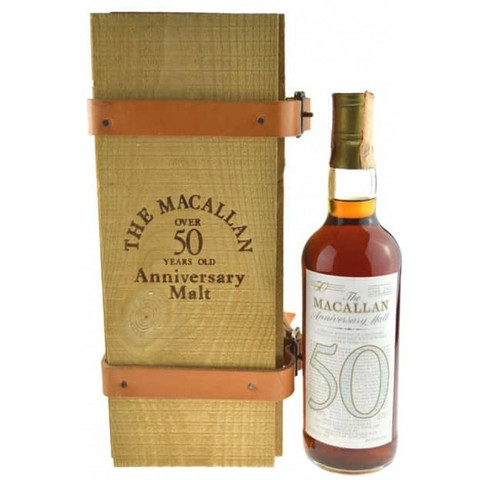Alkoholgehalt unter 40% in Whisky?
Laut der EU-Verordnung Nr. 1576/89 von 1988 muss ein Whisky mindestens 40% alc./vol. haben. Nun ist meine Frage wie es bei Whisky ist, der vor 1988 abgefüllt würde. Zum Beispiel der "The Macallan Anniversary Jahrgang 1928" der 1983 abgefüllt wurde. Dieser enthält nämlich nur 38,6 % alc./vol.
Darf dieser also offiziell als Whisky verkauft werden?

3 Antworten
Hallo Anne,
bzgl. Original/Fälschung vergleiche den Whisky mit anderen Abfüllungen aus der Serie (Quelle bspw. www.Whiskyauction.de). Prinzipiell und wie bereits beschrieben darf ein älterer Whisky (also vor Inkrafttreten der Bestimmung) auch unter 40 % haben. Aktuell ist nebenbei erwähnt der Scotch Whisky Regulation 2009 gültig, die sagt aber auch nichts anderes - da wurden andere Bestimmungen geändert/definiert.
Viel Erfolg und für weiter Fragen jederzeit gerne erreichbar
WFL
Dazu sagt die Scotch Whisky Association (siehe letzten Abschnitt ganz unten):
What is the legal definition of Scotch Whisky?
Scotch Whisky has been defined in United Kingdom (UK) law since 1909 and
recognised in European Community legislation since 1989. The current UK
legislation relating specifically to Scotch Whisky is The Scotch Whisky
Act 1988 and the Orders made under it. which came into effect in June
1990 and superseded that part of the Finance Act 1969. as subsequently
amended, defining Scotch Whisky.
For the purposes of The Scotch Whisky Act 1988 "Scotch Whisky'' means whisky
which has been produced at a distillery in Scotland from water and
malted barley (to which only whole grains of other cereals may be added)
all of which have been
(i) processed at that distillery into a mash;
(ii) converted to a fermentable substrate only by endogenous enzyme systems; and
(iii) fermented only by the addition of yeast;
(b) which has been distilled at an alcoholic strength by volume of less than
94.8 per cent so that the distillate has an aroma and taste derived
from the raw materials used in, and the method of, its production;
(c) which has been matured in an excise warehouse in Scotland in oak casks
of a capacity not exceeding 700 litres, the period of that maturation
being not less than 3 years;
(d) which retains the colour. aroma and taste derived from the raw materials
used in, and the method of, its production and maturation; and
(e) to which no substance other than water and spirit caramel has been
added. The Scotch Whisky Act 1988 prohibits inter alia the production in
Scotland of whisky other than Scotch Whisky.
The Scotch Whisky Act 1988 and European Community (EC) legislation
both specify a minimum alcoholic strength of 40 per cent by volume,
which applies to all Scotch Whisky bottled and/or put up for sale within
or exported from the Community.
However, transitional arrangements allow whiskies which do not comply
with the EC Spirit Drinks Regulation, including those at an alcoholic
strength lower than 40 per cent by volume, to be bottled unti! 14th
December 1990 provided that their preparation had begun before 15th June
1990. These whiskies may continue to be sold by wholesale or retail
until 14th December 1991 and thereafter by retailers until such time as
the stock they held on 14th December 1991 is exhausted .
© SWA 1995
Wieso sollte dieser Oldie nicht als Whisky verkauft werden?
Nur weil die EU neue Vorschriften geschaffen haben?
Was will Dein Kunde denn? Nur Recht haben? Den Preis drücken? Nettes Gepräch mit Dir führen? Mache Diskussionen machen ja keinen Sinn, da ist es dann hilfreich zu erahnen was der Gegenüber eigentlich nun will.
Ich arbeite in einem Spirituosenfachgeschäft und bin derzeit in einer Diskussion mit einem Kunden. Die oben genannte Flasche wird für 50.000 € angeboten.
Der Kunde meint es wäre eine Fläschung da ein Whisky laut Gesetz 40% haben muss. Dieser wurde allerdings vor dem Gesetz abgefüllt.
Es existieren nur 500 Flaschen dieser Abfüllung und ist somit eine Rariät und diesen Preis auch wert.